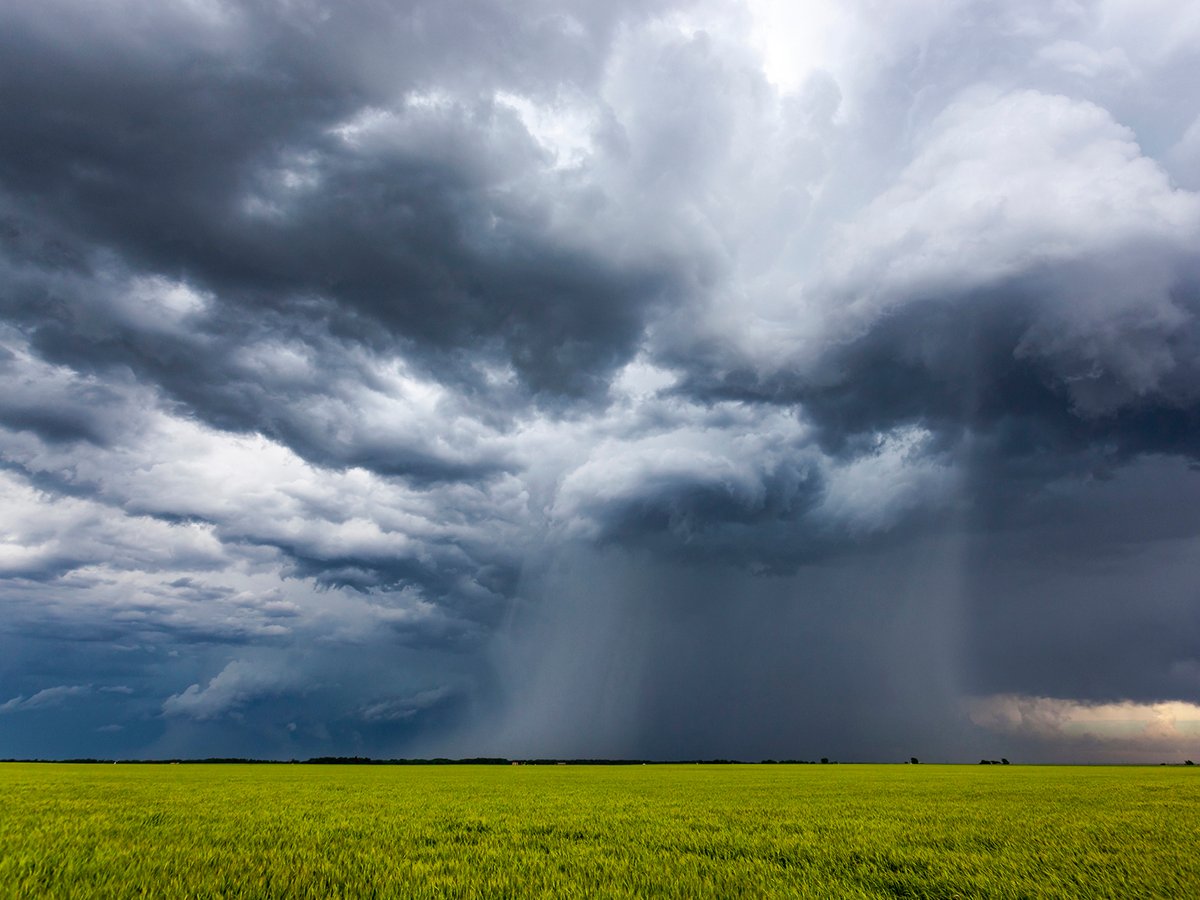A long-haul trucking project conducted by Manitoba and a private company shows the potential of biodiesel as a clean-energy alternative in the province, according to provincial science, technology, energy and mines minister Jim Rondeau.
“This demonstration conducted with our partner Border Chemical is evidence of the progress we are making in developing biodiesel as a made-in-Manitoba, clean-energy alternative,” said Rondeau.
“Demonstrating the viability of this project in our province’s climate extremes is a key component of our action plan to develop and promote the industry.”
Read Also

Extreme rain increases as planet warms
In this issue, we are going to wrap up our look at extreme rainfall by examining the different weather patterns that tend to be associated with these rainfall events.
Dennis Smerchanski, general manager of Border Chemical, said the demonstration will support the development of a new market for Manitoba farmers.
“Our farm customers have encouraged us to explore the benefits of using biodiesel made from canola oil,” he said.
The demonstration began in October 2006 with one truck using five percent biodiesel and another vehicle running on petroleum diesel. The biodiesel vehicle travelled more than 50,000 kilometres with temperatures reaching well below -40 C with no problems reported. Drivers noticed no change to vehicle performance; only a reduction in diesel smell.
Throughout the trial, Border Chemical has used biodiesel blends from five to 20 percent and will be monitoring various operational elements such as fuel economy, power and cold weather performance.Â
The test is scheduled to conclude later this spring, at which time a final report will be issued on the results of the demonstration.
The transportation sector, including agricultural vehicles, accounts for roughly one-third of the province’s greenhouse gas emissions. Tests have shown that a 20 percent biodiesel blend can reduce greenhouse gas emissions by nearly 18 per cent, making it one of the most effective tools for reducing carbon dioxide emissions in diesel engines.
“Biodiesel joins new-generation hydroelectric power, geothermal, wind and ethanol as one of the pillars of our clean-energy strategy,” said Rondeau.
The provincial government also plans to establish a biodiesel fuel-quality testing centre and a biodiesel office to co-ordinate government activities across departments and provide the public with a one-stop information source on biodiesel.
In North America, most engine manufacturers now warranty the use of biodiesel blends.














